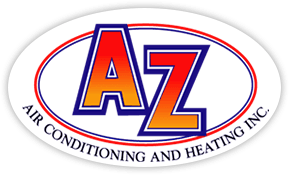
We can all benefit from saving money from time to time. One of the easiest ways to accomplish this is by improving energy efficiency throughout your home. Upgrading your HVAC equipment or putting in a smart thermostat, for example, gives you more control over your HVAC equipment, contributing to a more energy-efficient home and lower monthly energy bills.
Read on to learn more about 4 ways you can make energy-efficient home enhancements.
1. Try Smart Home Products Like a Smart Thermostat
If you still use a round-dial thermostat and control it manually, think about taking a step toward the future by installing a smart, or Wi-Fi, thermostat – which comes with several features to assist with energy efficiency.
The function homeowners enjoy the most is having the capability to access their smart thermostats from wherever through their smartphone or other smart device. For example, if you forget to use your thermostat before leaving for vacation, you can just pull out your smartphone and make the adjustments.
Similar to a programmable thermostat, a smart thermostat allows you to schedule your home’s temperature determined by the time of day and day of the week so you’re not heating or cooling an empty house. Smart thermostats also feature the capacity to understand your temperature preferences over time and automatically make energy-efficient adjustments. They can even create monthly energy reports that demonstrate how much energy you’re using and when so you can make modifications to save money.
If you’re curious about how to get a free smart thermostat, ask your utility company to find out if there are any discounts or free smart thermostats available to you.
2. Regularly Scheduled Tune-Ups for Your HVAC System
Unfortunately, some homeowners often forget to keep their heating and cooling systems maintained. While this may not seem important, ignoring maintenance could lead to a number of issues, including inefficiency, breakdowns, and a shorter system lifespan.
When performing an HVAC maintenance service, the technician is going to examine your HVAC system, clean necessary components, and pinpoint minor flaws before they lead to bigger, more expensive repair issues. Maintenance can keep HVAC systems running in optimal condition, which means less energy is needed to heat and cool your home. This will reduce your energy bills, prolong the lifespan of HVAC equipment, and contribute to fewer repairs.
We encourage two HVAC tune ups every year – once in the spring before summer and again in the fall before the arrival of frigid weather.
3. Getting rid of Your Aging, Inefficient HVAC Equipment
Unfortunately, like any appliance, HVAC systems don't last forever and inevitably need to be replaced. Newer heaters and cooling systems are much more energy efficient than equipment manufactured just over a decade ago. Luckily, helpful HVAC companies like AZ Air Conditioning and Heating can handle professional services including furnace installation in Los Angeles.
Well-maintained furnaces and air conditioners can run for approximately 15-20 years. If your system is within that period of time, it can be a good idea to replace them now to prevent premature equipment failures that can leave you cold and uncomfortable if it’s a cold winter night. If your equipment is approaching 15 years old and needs an expensive repair, it’s definitely time to replace the unit. Per the U.S. Department of Energy, upgrading to a new HVAC system can sometimes save you between 20-40% on your monthly energy bills, so you’ll get back some of the costs of putting in a new system.
A professional comfort technician can help you find the most energy efficient HVAC system for your needs. For the most part, look for HVAC systems that are Energy Star certified, indicating the equipment meets firm guidelines established by the U.S. Environmental Protection Agency. LENNOX HVAC systems can be some of the most efficient systems available, offering both high AFUE and SEER ratings. AFUE is for heating systems and illustrates how well they convert fuel to heat. SEER, in the meantime, is used to measure the efficiency of cooling equipment.
Call a reputable HVAC provider like AZ Air Conditioning and Heating for air conditioning installation in Los Angeles.
4. Switch to More High Efficiency Air Filters
When you’re searching for new HVAC filters, keep in mind that not all air filters are capable of providing the same results. Some air filters are far more successful than others, contributing to lower energy bills and a clean home.
The performance of HVAC air filters is scored by their Minimum Efficiency Reporting Value, or MERV rating. The MERV scale ranges from 1-20; the higher the number, the more efficient the filters are. It’s relevant to note, however, that high-efficiency air filters can in fact restrict airflow too much according to the type of HVAC system you installed. It’s beneficial to review the owner’s manual before getting a filter to find the ideal model for your system.
